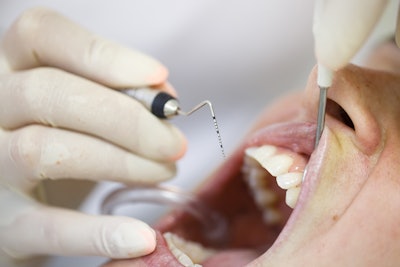
Periodontitis may contribute to thrombosis by promoting the transmission of bacteria and systemic inflammation in turn affecting cell interactions and coagulation, suggests the findings of a review published in the International Journal of Oral Science.
Regular periodontal monitoring should be considered for individuals at risk of thrombosis, the authors wrote.
"The high prevalence of periodontitis and the potential systemic harm it poses make the management of oral health in people and patients at risk for cardiovascular disease extremely important,” wrote the authors, led by Jinting Ge of the Sichuan University West China Hospital (Int J Oral Sci, October 15, 2024, Vol. 16, 58).
Recent studies suggest that periodontitis may increase the risk of thrombosis through the spread of bacteria or systemic inflammation, which impacts platelet-immune cell interactions and coagulation. The goal of the study was to highlight clinical findings linking periodontitis to thrombosis and introduce new prothrombotic agents related to periodontitis, the authors wrote.
Individuals with periodontitis have significantly higher levels of circulating thrombotic factors and increased blood cell reactivity compared to healthy individuals. It suggests that periodontitis may contribute not only to atherosclerosis-related cardiovascular diseases but also to the progression of thrombotic diseases in general.
Furthermore, periodontitis directly influences hypercoagulability and endothelial damage and indirectly slows blood flow, promoting thrombosis. Studies have identified bacteremia from periodontal infections and immune system dysbiosis as mechanisms linking periodontitis to thrombosis, they wrote.
Current clinical guidelines for thrombotic diseases lack recommendations for oral health management.
The treatment of thrombotic diseases is evolving beyond traditional medication and surgery, highlighting the need to explore the potential role of periodontal therapy in managing thrombosis. Understanding the connection between periodontitis and thrombotic diseases is crucial to advancing multidisciplinary treatment, offering improved outcomes and new therapeutic options for patients, they wrote.
However, while studies suggest that periodontitis may contribute to the development and progression of thrombotic diseases, the periodontal health of patients with these conditions is not routinely assessed or documented. More large-scale, high-quality clinical trials are needed to confirm these findings, the authors added.
"The correlation mechanism between periodontitis and thrombosis remains to be elucidated, and we are expecting the discovery of more bridge-mediated therapeutic targets and intervention modalities in the future," Ge and colleagues concluded.




















